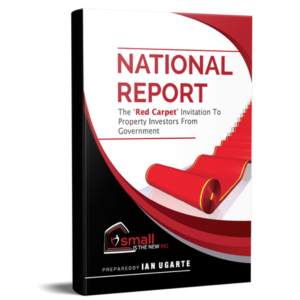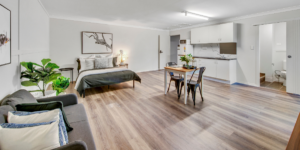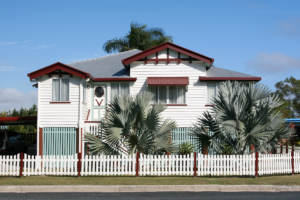If you’ve read any of my past blogs (like this one for first home buyers), you’ll know I don’t recommend investing in apartments. Not if you want to produce the best cashflow, and certainly not if you want to be able to achieve “manufactured growth”, i.e., make improvements that will increase value.
6 reasons to say no to apartments if you’re buying an investment property.
On the surface, an apartment can be very attractive. The price may be cheaper than a house in the same area. It may have a fancy foyer, a gym in the basement and a pool in landscaped gardens. What tenant doesn’t love that?
But put those pretty features in front of me and all I see are red flags. Property investments are a financial decision pure and simple, and for the following 6 reasons I vote against apartments.
1. We like grass between our toes
In other countries around the world, people are used to living vertically; densification of housing is the norm. They’re happy with a balcony or a view as a substitute for a yard or garden.
But Australians crave interaction with the outdoors. They want to live horizontally with grass between their toes when they step outside. The yard they grew up in as a kid is the yard they want when they’re older.
Yes, there are thousands of (mostly younger) people living in the thousands of unit blocks built in Australia. But even they will get to a point where they’re tired of living in such close proximity to other people, and breathing in other people’s cooking smells, and having neighbours’ cars blocking their car space. It makes life more complex and requires more empathy from the resident.
And when you start to have kids, the pull of a patch of yard becomes stronger. In my view we’re still about 15 years away from thinking of apartments as the norm.
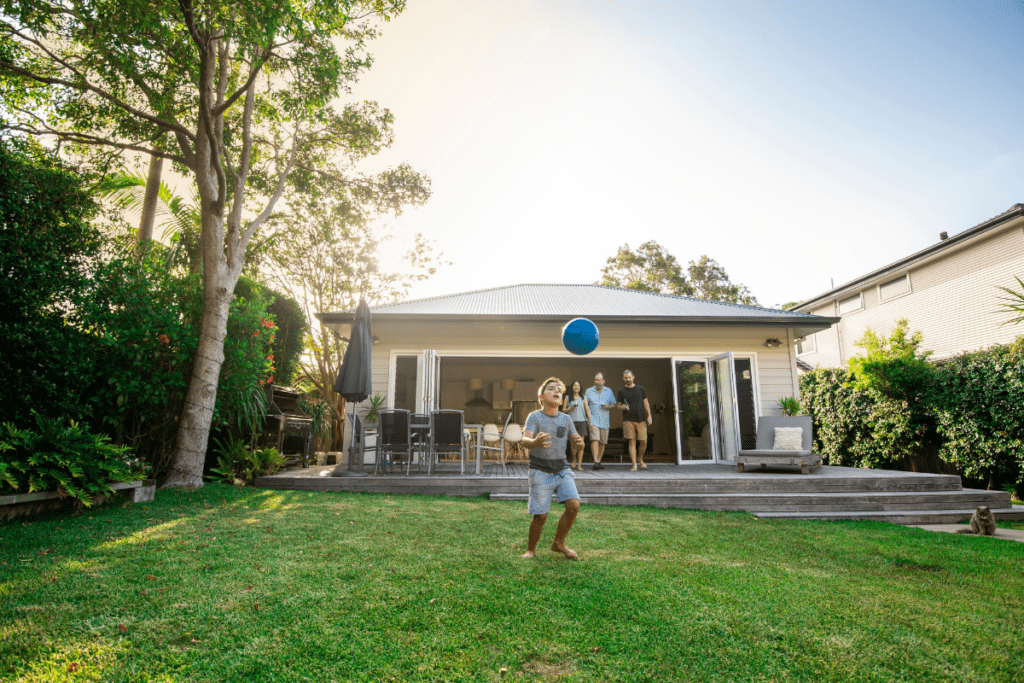
2. Body corporates have ultimate control
Units don’t give you the same control over your property as houses do.
If you buy a two-bedroom unit for example, and you decide you want to turn your second living room into an extra bedroom, or cut a piece out of your living room to do the same, your strata committee will need to approve it.
Even after the approval is granted, there are added complications. If you want to take out a wall, you have to get engineers involved to ensure you won’t put units above, below or adjacent at risk – and many engineers won’t want to take on that risk.
Also, the original allocation of car spaces may only have allowed one per unit. Now that you’ve flipped over to three bedrooms, you may need two car spaces. The body corporate isn’t going to release a car space to you and that means someone will be parking on the street – not an easy thing in built-up areas.
3. Off the plan can trip you up
Some people follow a strategy of buying off-the-plan units, signing up for a property that hasn’t been built yet; and if they’re lucky, by the time it’s built, they end up with more value than the contract price. But it’s a dangerous game.
Ultimately the unit’s value could end up being lower. That was the case for many in Sydney in 2018 and 2019. There were buyers at settlement losing 10% of value for the contract they’d signed. Their banks wouldn’t give a valuation that matched the contract, so buyers had to find the extra money to make up for the lower value.
As an example, for a $400,000 purchase, buyers were having to find an extra $40,000 to $60,000 to complete. If they only had $40,000 as a deposit in the first place, and they were going for a high loan value ratio (LVR), that’s a lot of money for people to find, and a lot of people were losing their deposits.
In that situation, the developer would then re-sell the unit, which is their right under the contract. If there’s a shortfall between the new contract value and the original contract value, they also have the right to sue the original contract holder for the difference.
SCROLL DOWN to find out why apartments don’t benefit from the same capital growth as single-family homes BELOW
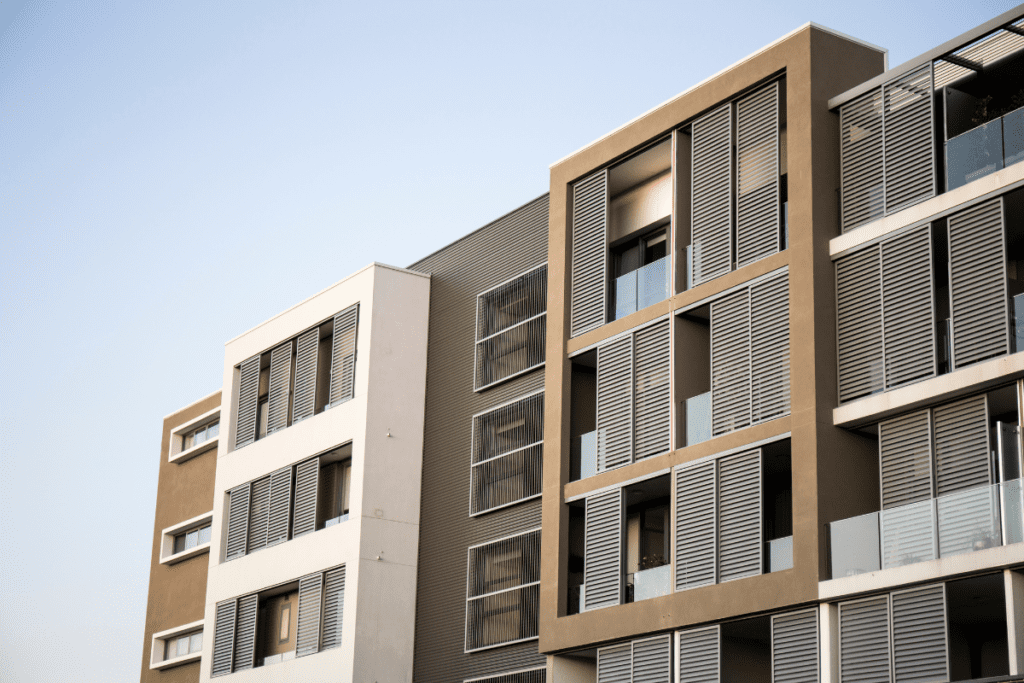
4. Strata fees can be hefty
Yes, apartments may be available at a lower price point compared to some houses, but when you’re looking at buying an investment property you might find a unit actually ends up being more expensive. Those appealing lifestyle factors like a concierge, landscaped gardens, pools and lifts don’t come for free, and nor do the people who clean them, trim them, repair them and service them.
On top of your portion of rates and strata fees you may also potentially have to contribute to extra levies if the strata votes to invest in major improvements or upgrades. These might include painting exteriors, replacing external shutters or rectifying major structural issues.
5. Cookie-cutter drives values down
Depending on the age and type of your unit, your property may look and feel like many others in your block or blocks nearby. When someone in your unit complex is in financial distress and sells their unit cheaply, it can potentially lower the value of your property, regardless of the condition yours is in.
Many of the newer, bigger complexes, have been constructed as quickly and cheaply as possible for maximum profit, with trades negotiated down on price, which results in contractors cutting corners on their work. That brings quality of workmanship down.
There’s also the certification issue. Building certifiers have rising insurance costs so it’s in their interests to push as many approvals through as possible to cover those costs. Defects go unreported and unit owners pay the price.
Owners are stuck with properties they can’t sell and big repair bills for major structural defects. Even if your building has no defects reported, these kinds of scandals often tar new apartment towers with the same brush.
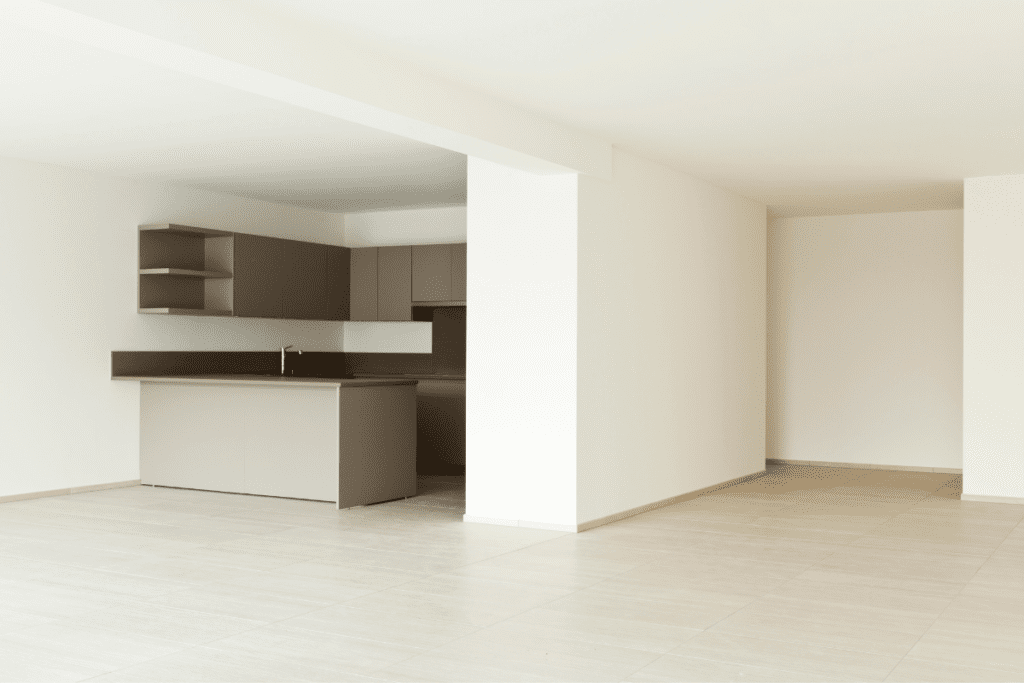
6. There’s no guarantee of capital growth
Even when you’re buying a house as an investment property, there’s no guarantee of increased capital growth. With apartments, it’s even less secure in my opinion.
If you buy a modern unit in a big block, it doesn’t matter if you’re in the coolest inner-city suburb, near the train, or how fab your fitout is – capital growth is compromised if there are thousands of others like it for buyers or renters to choose from.
Since 2017 we’ve seen capital growth declining for apartments, and in some cases we’ve seen negative growth, because of the oversupply of stock. The writing was on the wall from 2014 to 2015 with the number of development approvals being processed for unit blocks.
Add to that the advent of COVID, with many overseas students and people on international working visas exiting Australia in their droves and decimating the unit rental market.
With all of this in mind, I foresee a slow take-up of units in the near future for our cities; eventually the oversupply will be absorbed and only then will we see a positive change in capital growth.
Regionally, units have seen positive capital growth with a groundswell of people moving out of cities to fight for limited unit stock. Note though that we’ve seen growth for houses as well; and would people rather have a 120m2 villa or unit, or a 400m2 block of land with a detached house?
My advice for people buying an investment property, is always to go for a house; and if money’s tight, look in an area with a lower price point.
LEARN HOW to build a portfolio of homes rather than apartments that have a cash flow positive return in my NEXT WEBINAR HERE

